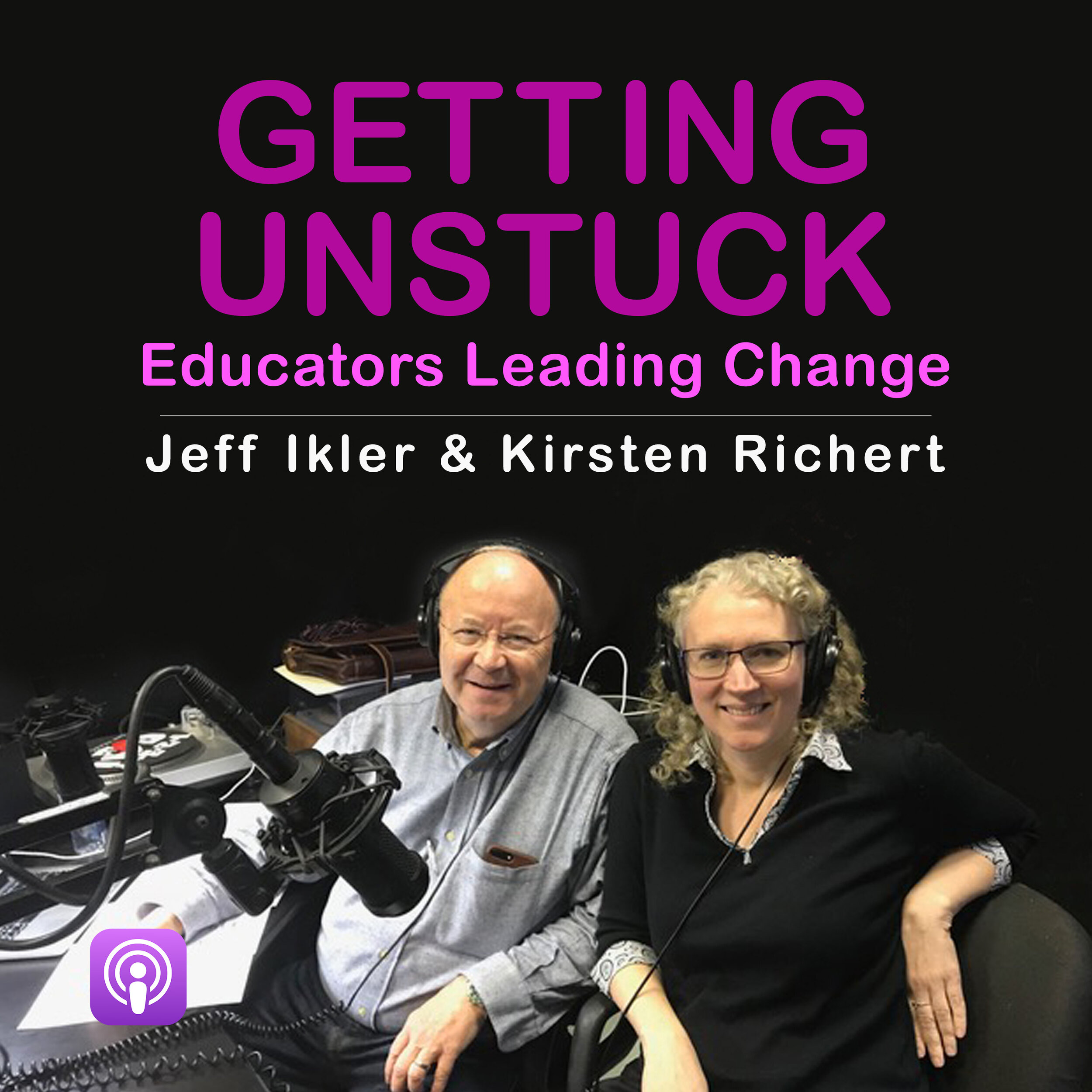Getting Unstuck #196: A Transformation Story: Can You Hear Me Now?
“Let’s say you’re a teacher in a school, and you have an idea that you want to garner support for and promote. Start by getting other teachers in your school on board with your idea. Develop this core group that will be your supporters and help advocate with you. And that’s where you want to start: start small.”
“I talk about education problems all the time. And a lot of people will say, ‘Oh, well, we just need to find more money.’ Lack of money isn't the problem. Money may facilitate a solution, but it's not the problem. The first step is to admit there's a problem in education. And when you're dealing with large bureaucracies, people will just say, 'Oh, but it's always been done this way.' So, you have to move beyond that mindset, and really have the honesty and the courage to admit there's a problem.”
Our guest
Suzanne Rupp DeMallie is a former educator and author of the recently published book, Can You Hear Me Now?
The book and our conversation are told from the perspective of transformation:
>where Suzanne begins her story;
>a catalyst event that shifts her story in a different direction; and finally
>resolution.
Suzanne begins her journey as a wife and the mother of three who has learned that her son suffers from a neurological hearing disorder. After extensive research, she decides to do something about the acoustical issues in her son’s classroom, which are the same acoustical issues one would find in most classrooms.
As her book’s title indicates, Can You Hear Me Now? is, at first, Suzanne’s effort to improve the auditory conditions under which her son is being educated.
But that journey is only one layer of a more complex story. The title is really a double entendre because along the way, Suzanne encounters the roadblocks that typically any reformer would encounter trying to change an established system. Can You Hear Me Now? becomes the story of Suzanne struggling to be heard in the bureaucratic maze that is K12 education.
Suzanne’s motivation takes her back to school where she gains a teaching certificate. With classroom experience, Suzanne and Can You Hear Me Now? delve into the larger issues standing in the way of implementing an education system that is more attuned to the needs of students who face uncertainty in our complex and rapidly evolving world.
Can You Hear Me Now? is ultimately a warning shot across the bow of our traditional K12 education system: adapt to the needs of today’s students or watch them migrate to “competing” systems like charter schools and home schooling.
Referenced
The 10 Critical Steps in Advocating Reform
Step 1: Admit There Is a Problem
Step 2: Identify the Root Cause of the Problem
Step 3: Do the Research – Educate Yourself
Step 4: Find the Best Solution
Step 5: Start the Conversation at the Most Basic Level
Step 6: Expand the Conversation to Local “Agents of Change”
Step 7: Find Strength in Numbers
Step 8: Broaden the Conversation beyond the Local Boundaries
Step 9: Be Resilient – Adapt the Plan as Necessary
Step 10: Accept the Outcome – Focus on the Positive
Which is the “most important” step?
Making the Case for a Specific Educational Reform
Click here to watch Suzanne explain how she would change grading practices to improve student performance.
Connect with Suzanne
ContactMe@SuzanneDeMallie.com
Follow her on: Facebook | Twitter | LinkedIn
https://SuzanneDeMallie.com
Connect with Jeff and Kirsten
• Subscribe, and consider leaving us a rating and review on
or wherever you pick up your podcasts.
• Follow “Worth a Look, Listen, or Read” on LinkedIn – our new mini-podcast that reinforces key change and innovation concepts to help you get unstuck.




